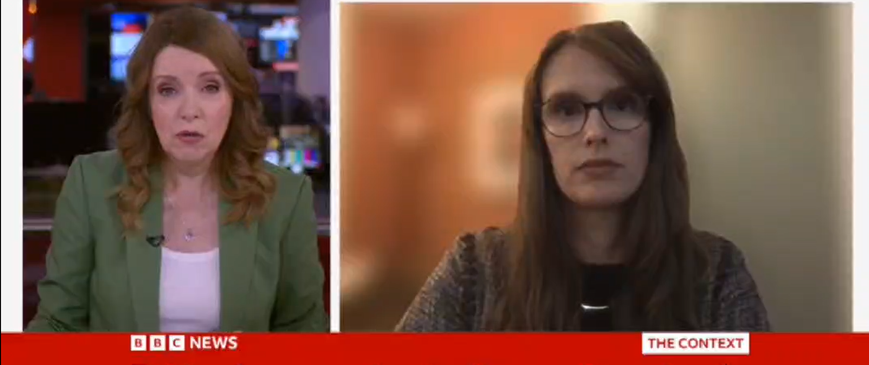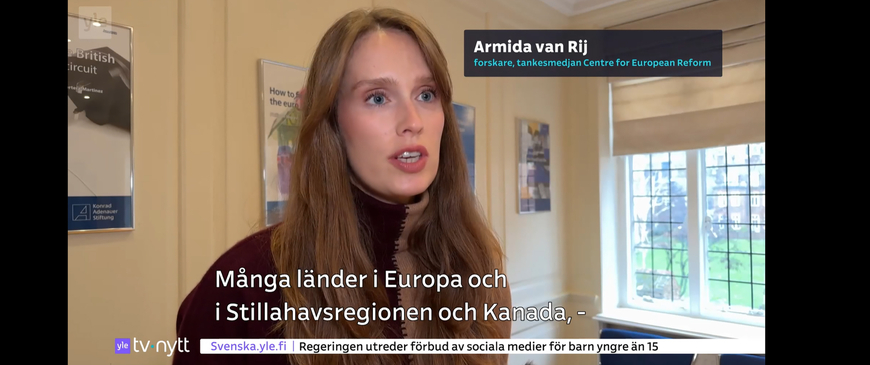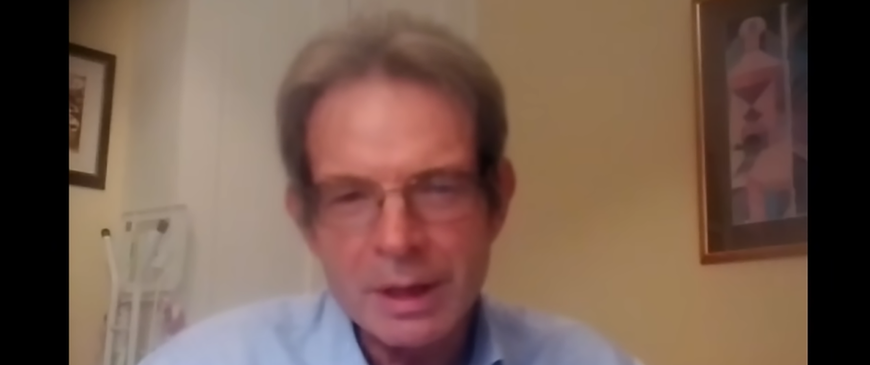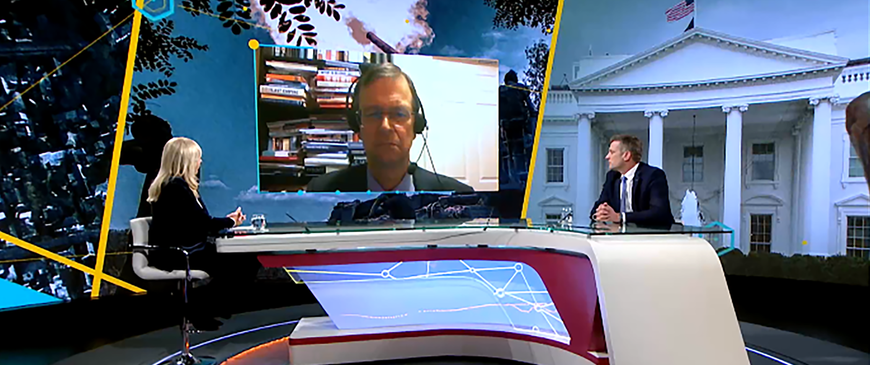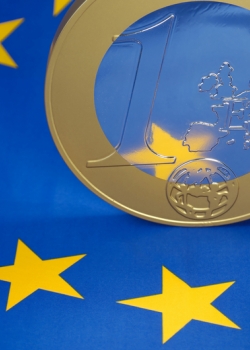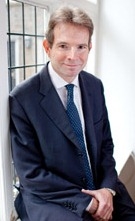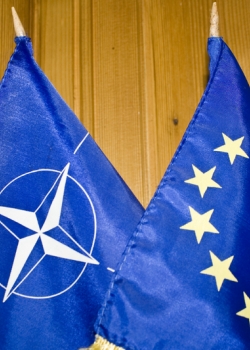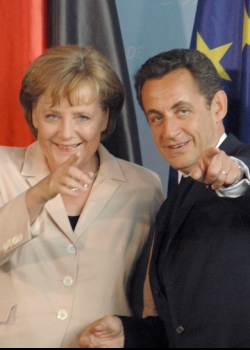Press
L’audace de la zone euro et le FMI
12 April 2012
Les Echos
LE CERCLE. (par Simon Tilford) - Les décideurs et les hommes politiques de la zone euro ne doutent de rien : ils ont contribué leur part pour soutenir les membres de l’union monétaire en difficulté en accroissant le montant de son fonds d’urgence, le Mécanisme européen de stabilité (MES).
LONDRES –...
LONDRES –...
French election: A tale of two presidencies
11 April 2012
Financial Times
"For the first time in the history of the European Union, Germany is the unquestioned leader and France is number two," wrote Charles Grant, director of the CER, at the height of the crisis.
Eurozone Chutzpah and the IMF
11 April 2012
Project Syndicate
LONDON – Eurozone policymakers and politicians are in no doubt: they have done their part to support the currency union’s struggling members by increasing the size of its rescue fund, the European Stability Mechanism (ESM). Now it is time for the rest of the world – that is, the...
UK's Cameron to visit Myanmar as EU mulls sanctions lift
10 April 2012
Reuters
Tomas Valasek of the CER think-tank in London, said there was some "one-upmanship" among EU countries when it came to Myanmar. "Assuming Myanmar continues to develop, everybody in Europe wants to be seen as the one that broke the ice with the country," he said.
Syria is battelground for China and US
09 April 2012
Gulf News
In the view of Charles Grant, of the CER, Putin holds "a less benign view of the United States". Writing an op-ed recently in The New York Times, Grant said that Putin "sees US hegemony as a bigger problem than the rise of Chinese power."
Some Easter reading on world affairs
08 April 2012
Financial Times
I am currently in Washington, DC. I packed two books to read on the flight over: "Russia, China and Global Governance" by Charles Grant (actually a long think-tank pamphlet, published by the Centre for European Reform) and “Every Nation For Itself, Winners and Losers in a G-Zero World” by Ian Bremmer.
Will Putin delete the reset?
04 April 2012
The International Herald Tribune
In February 2009, Vice President Joe Biden called for the reset button to be pressed in the U.S.-Russia relationship, and for the next three years Presidents Barack Obama and Dmitri Medvedev fostered a rapprochement between Washington and Moscow.
Spain leads EU with record unemployment level
03 April 2012
Voice of America
John Springford of the CER, says the nature of Spain's labour market, with a large chunk of workers on precarious, short-term contracts, compounds the country's problems. "It is looking extremely bleak. The eurozone is projecting that we are going to see a downturn of about 2.2 per cent in Spain."
The implications of multipolarity for Central Europe’s security
02 April 2012
Center for European Policy Analysis
For years, Central Europeans have fretted that the United States might withdraw from the European security arena in order to focus on more pressing issues in other parts of the world. Over the last 12 months, these concerns have been exacerbated.
A two-speed economy for Europe's youth
02 April 2012
Reuters
In an article written for the CER, John Springford lays the problem out clearly. In EU countries where rates of unemployment are high levels of participation in higher education and vocational studies is approximately 40 per cent. In Germany, Norway, the Netherlands, Denmark and Finland, where youth unemployment is fairly low, rates are closer to 60 per cent in some cases.
Germany supports the Government and believes that the 29th March should not stop it
01 April 2012
La Vanguardia
"Investors are gradually concluding that Spain is not on the verge of a soft recession but a real crash" notes Simon Tilford, chief economist of the CER. "Spain is being asked to do the impossible, something no other comparable country has ever managed. Neither Ireland nor Latvia is a model for Spain, warns Tilford. What might possibly work for such small economies will not work in a country of the size of Spain."
Punishment of the model student
01 April 2012
La Vanguardia
Simon Tilford, chief economist at the CER, says "There is risk that many of the good things that occurred in Spain in the run-up to the crisis are now being overlooked, much as in the case of Ireland, whose pre-crisis growth story is now portrayed as now more than a property bubble". "Spain has not done so many things badly" continues the economist from CER, for whom the key cause of the crisis in Spain was "the massive inflow of capital into Spain as Spanish households and businesses – encouraged by negative real interest rates – went on a borrowing spree.
Europe ministers reach deal on trillion-dollar 'firewall'
30 March 2012
Voice of America
Simon Tilford is chief economist at the CER. He says Europe's reaction to its economic crisis is not working. What is needed, he says, is a federalized system where resources cross borders more freely.
Spanish workers protest labour reforms
29 March 2012
Voice of America
Simon Tilford, chief economist at the CER in London, said austerity measures in Spain, like elsewhere, will not solve its economic problems. "What's worrying about what we are seeing is that very little seems to have been learned from what happened in Greece and Ireland and Portugal," he said.
EU's working time directive
28 March 2012
BBC Newsnight
Simon Tilford of the CER argued that the proposed amendments to the EU’s working time directive are unnecessary, but that their impact on UK businesses will be limited and the British government should reserve its firepower for more important issues.
Companies hoard cash, damping growth
22 March 2012
The Wall Street Journal
According to Simon Tilford, chief economist at the CER, the ratio of investment to gross domestic product in Europe is at a 60-year low even as companies pile on cash. Corporate cash holdings are now €2 trillion ($2.64 trillion) across the eurozone and an extraordinary £750 billion ($1.19 trillion) in the UK.
Economists: Europe stuck on bailout merry-go-round
22 March 2012
The Guardian
"There's a real risk that the Spanish economy will get caught in a downward spiral and need a bailout," said Simon Tilford, chief economist at the CER.
One flew over the EU's mess
19 March 2012
The Wall Street Journal
Welcome to the European Union Home for the Economically Insane. We care for nations dealing with status anxiety, paranoia and low self-esteem, or those who are simply drifting into a senile old age. Please follow me on the guided tour.
Upstairs we have the Acropolis Room. This is where...
Upstairs we have the Acropolis Room. This is where...
On aviation and climate, the EU must stick to its route
15 March 2012
European Voice
Charles Grant, the director of the CER, a think-tank, could hardly have timed better his pamphlet on "Russia, China and global governance", published at the end of last month.
A letter to David Cameron
15 March 2012
Mark Lynas.org
Dear Mr Cameron,
We write because we believe you have been misled by four prominent environmentalists who contacted you recently about nuclear power.
We write because we believe you have been misled by four prominent environmentalists who contacted you recently about nuclear power.

